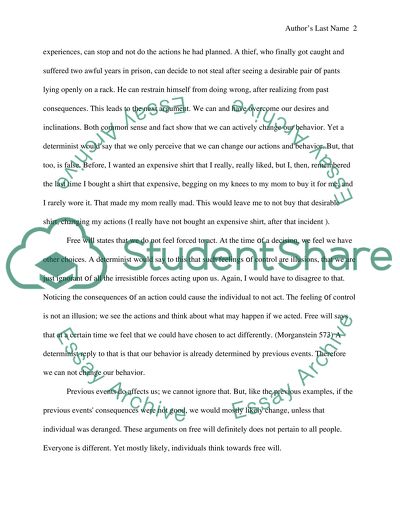Cite this document
(“Free Will vs. Determinism Essay Example | Topics and Well Written Essays - 2250 words”, n.d.)
Free Will vs. Determinism Essay Example | Topics and Well Written Essays - 2250 words. Retrieved from https://studentshare.org/miscellaneous/1543486-free-will-vs-determinism
Free Will vs. Determinism Essay Example | Topics and Well Written Essays - 2250 words. Retrieved from https://studentshare.org/miscellaneous/1543486-free-will-vs-determinism
(Free Will Vs. Determinism Essay Example | Topics and Well Written Essays - 2250 Words)
Free Will Vs. Determinism Essay Example | Topics and Well Written Essays - 2250 Words. https://studentshare.org/miscellaneous/1543486-free-will-vs-determinism.
Free Will Vs. Determinism Essay Example | Topics and Well Written Essays - 2250 Words. https://studentshare.org/miscellaneous/1543486-free-will-vs-determinism.
“Free Will Vs. Determinism Essay Example | Topics and Well Written Essays - 2250 Words”, n.d. https://studentshare.org/miscellaneous/1543486-free-will-vs-determinism.


